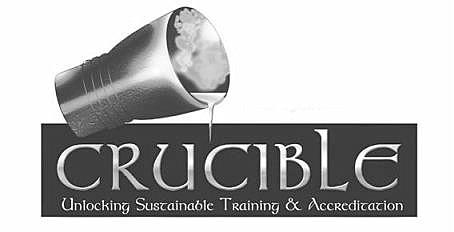
Charne Webb, Varsha Budhram (pictured above yesterday)and the First Resorts management team commitment has shone through. Although vocational training accreditation within South Africa is often viewed as an onerous process it actually adds a few more arrows to the training quiver. Like any legalistic process the accreditation process for training departments can provide an excellent benchmark to review and reflect on existing training and development practice. First Resorts is already recognised as a top resort management company and considering that the resort business is all people and service-driven, it came as no surprise that the drive to develop and grow the staff into high performers as well as give them formal recognition for their expertise was an inevitable step.
That step has taken the team on a long journey into the unknown. We have been honoured to share some of this important process with Charne and Varsha. This process has seen the introduction of a quality driven framework as well as the development of resource-rich learning materials and most importantly, incorporating key requirements of the business and the resort operations.
Noting that most of the resorts employ rural staff with low literacy and education levels, we (First Resorts and Crucible Services) targeted this group of staff as the primary beneficiaries for accredited training programmes for the pilot phase of training. These programmes include a full year certificate in hospitality reception, the coal face of the resort business. Where service with a smile really does mean exactly that, no matter what time of the day or night or how you are feeling at the time.
The THETA decision in itself validates the training approach and vision of First Resorts, acknowledging the work and commitment of the training and development team over the last twelve months. At a higher level this supports the perspective of the executive in acknowledging the importance of staff to the business model and actually acting upon it in a decisive and pro-active way.
Well the next step in the process is to pilot the approved training at selected resorts and learn from its success and its challenges and continue to grow the offering of approved training.
The key learning here for other training departments is to consider a more comprehensive approach to training planning, by linking training projects to pilot projects where the training team can deliver on the current need of the departments, whilst testing the waters with other types of interventions. This kind of approach separates the traditional 'reactive-style' training department from that of a more proactive exploratory team that links new training interventions to business objectives whilst also supporting community and social development needs. First Resorts is proving that it is evolving into a triple-bottom line citizen that will play a sigificant role wherever it operates throughout South Africa.
In the global arena Technical and Vocational Training (TVET) is often the province of publicly managed education and training providers or institutions, but the training and education provision can be successfully delivered by key sectors in partnership with public frameworks.
This powerful partnership between business and the public sector can harness inherent strengths of both players in a creative and innovative fashion. The support from THETA during the process was excellent, thorough and focused. Achieving the common goal of people development and growth is the key issue here, not necessarily the architecture and structure of how it is done. The common language of people development is a powerful catalyst for both the private and public sector to collaborate and work on. Both role-players can acknowledge that they cannot do it on their own. That acknowledgement is key. Which is where we all need to be heading, people growth for rapidly changing world.





No comments:
Post a Comment